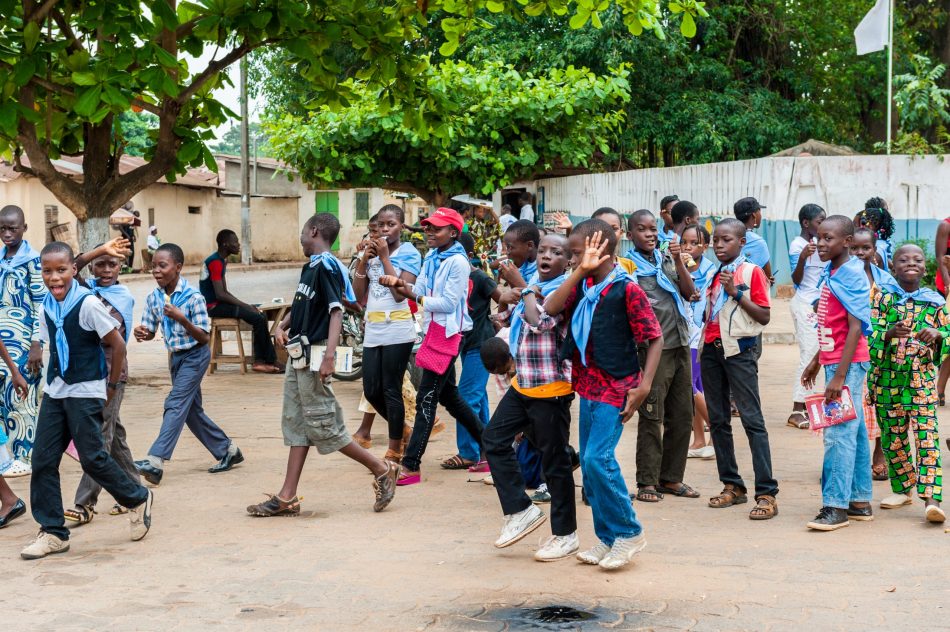If you are reading this article, then chances are that you are in a country with abundant access to electricity. For most people living in Sierra Leone, the opposite is true. In fact, the West African country has one of the lowest access rates for electricity across the globe. Just six percent of people in rural areas and only 26 percent of the overall population have access to electricity, according to the Sustainable Energy for All (SEforALL). The majority rely on solar lanterns and dry-cell batteries because they aren’t hooked up to the national grid.
Ingrid Rohrer, an energy specialist at SEforALL says that “ensuring the provision of affordable energy services is a huge challenge. The lack of electricity poses significant challenges to economic growth and development, health services, and the possibilities for learning.” Other detriments are the high costs of purchasing charging services, expensive batteries for lights, and kerosene which can negatively impact people’s health when used indoors.
Furthermore, the electricity infrastructure in Sierra Leon dates back to the 1960s and needs to be updated, so even those connected to the grid can’t rely on the power due to frequent power cuts.
Jeremiah Thoronka, a bright student who was awarded a scholarship to attend one of the best schools in the region at the age of 10, recalls his first-hand experience growing up without energy or electricity. Once he received his scholarship, he noted the shocking disparity between his village and the school, saying, “every day I was moving between two worlds… there was electricity in abundance at school.”
Meanwhile, in his village, he witnessed the terrible effects of inequitable access to energy, which motivated him to combat energy poverty across the country. “I wanted to develop a more sustainable energy system, educate people about energy efficiency, and stop their overuse of natural resources,” he says. “Access to energy is a human right,” he continues. “We cannot function in an energy-less society.”
At the age of 17, while studying at the African Leadership University in Rwanda, Thoronka founded Optim Energy, a start-up that utilizes kinetic energy (the energy objects have when in motion), to produce clean electricity. To capture kinetic energy, he developed a piezoelectric device that harnesses energy from heat, movement, and pressure.
Thoronka intended for the device to be placed under a road, where there are plenty of pedestrians and traffic to create vibrations which are then absorbed and used to generate an electric current. This means that passersby produce energy simply by walking—and without knowing that they’re part of that process.
There are plenty of advantages to using kinetic energy. “The sun is not always shining, water is drying up, fossil fuels are not always going to be used, but people are always moving,” Thoronka says. Plus, because nothing is burned to generate energy, there aren’t any emissions released in the process.
While Thoronka was driven by his desire to help people in his own community, his invention can be used anywhere in the world that experiences heavy traffic. Winnie Muchina, acting program lead of the Global Challenges Faculty at the African Leadership University in Rwanda says that implementation of the device “will mean more time for children to study and be digitally included in what is happening in the world, as well as the support of other economic activities which are desperately needed to move the country forward.”
Thoronka’s local area, Kuntoluh, was the place Optim Energy decided to run its first pilot program. The trial, which used two devices, was successfully able to provide free power to 150 households made up of 1,500 people and 15 schools with over 9,000 students.
Since the devices have been installed, the benefits of adopting clean energy are obvious. Once children had access to lighting and were no longer exposed to smoke within their homes, their school performance and health improved significantly. Street lighting also makes the area safer and allows businesses to stay open later.
On top of making energy more accessible, the now 20-year-old Thoronka wishes to educate people in Sierra Leone about the environmental impacts of energy use, so that they can use their power efficiently and conservatively. He also works with local students, saying “we educate them about why they should take responsibility for the environment and change their consumption behavior.”










